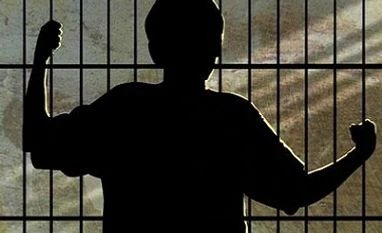The Delhi High Court has directed that the process of age determination of a juvenile in conflict with law shall be completed within 15 days of filing of documents and ossification test by the investigating officer of a case.
The high court said the investigating officer (IO) shall ensure that the ossification test in relation to the juvenile is completed, a report is obtained and filed before the Juvenile Justice Board (JJB) within 15 days from the date the test is ordered by the board.
"In all cases pertaining to juveniles in conflict with law, regardless of the nature of offences alleged, the JJB shall ensure that the process of age-determination of the juvenile is completed within 15 days from the filing of documents relating to proof of age/ossification test report by the Investigating Officer, as the case may be, a bench of Justices Siddharth Mridul and Anup Jairam Bhambhani said.
The high court issued various directions for further streamlining the process of inquiries relating to juveniles and made it clear that they should be scrupulously complied with by all the authorities concerned.
It said that regardless of the nature of offences, in all cases pertaining to juveniles in conflict with law, the IO of the case shall collect and file before the JJB requisite documents towards proof of age of the minor within 15 days from the date of issuance of such directions by the JJB after production of juvenile before it.
The bench was dealing with various issues pertaining to the interpretation and effective implementation of some provisions of the Juvenile Justice Act.
The high court granted four weeks time to the State to apprise it of the number of cases where inquiries are pending in each JJB here against juveniles for a period between six months to one year, along with the date of institution of the inquiry and the date of the first production in each case.
More From This Section
The court said the information shall preferably include the rehabilitation plan/ individual care plan for each child or juvenile.
"The State is further directed to apprise the court as to the quantum of money sanctioned and allocated for the Juvenile Justice Fund and the quantum disbursed from the said fund, along with the purpose for which money was disbursed, as of November 30, it said.
The court further directed the State to apprise it of the status of the proposal to increase number of JJBs in the city, including timelines proposed for the purpose.
It listed the matter for further consideration on December 14.
Senior advocate H S Phoolka, who was appointed as amicus curiae in the case, said that though a sizeable corpus is available in the Juvenile Justice Fund set up under the JJ Act, it appears that no significant sum has been disbursed for the intended purposes over the past several years.
He further said there was a proposal to set up 11 JJBs for a territory as large as Delhi, which at present has only six JJBs, though it has 11 judicial districts.
The court was informed that as of date, only 19 inquiries relating to petty offences against juveniles were pending before JJB-II, while all such inquiries pending before other JJBs either stand closed or there were no such inquiries pending before such boards.
Regarding the 19 cases pending before JJB-II, the Delhi government counsel assured the court that these inquiries will also be closed within the next few weeks.
The court noted that "accordingly, going by the number of inquiries indicated in the tabulated summaries relating to various JJBs in Delhi, it transpired that according to the State, a total of 913 inquiries alleging petty offences against children/ juveniles stand closed as of November 27.
On September 29, the court had ordered that all cases where inquiries against minors allegedly in petty offences are pending in JJBs and remain inconclusive for over one year stand terminated with immediate effect.
It had noted that as per Section 14 of the Juvenile Justice Act, the inquiry in such cases shall conclude in four months from the date of the first production before the board unless the period is extended for a maximum of two months.
)